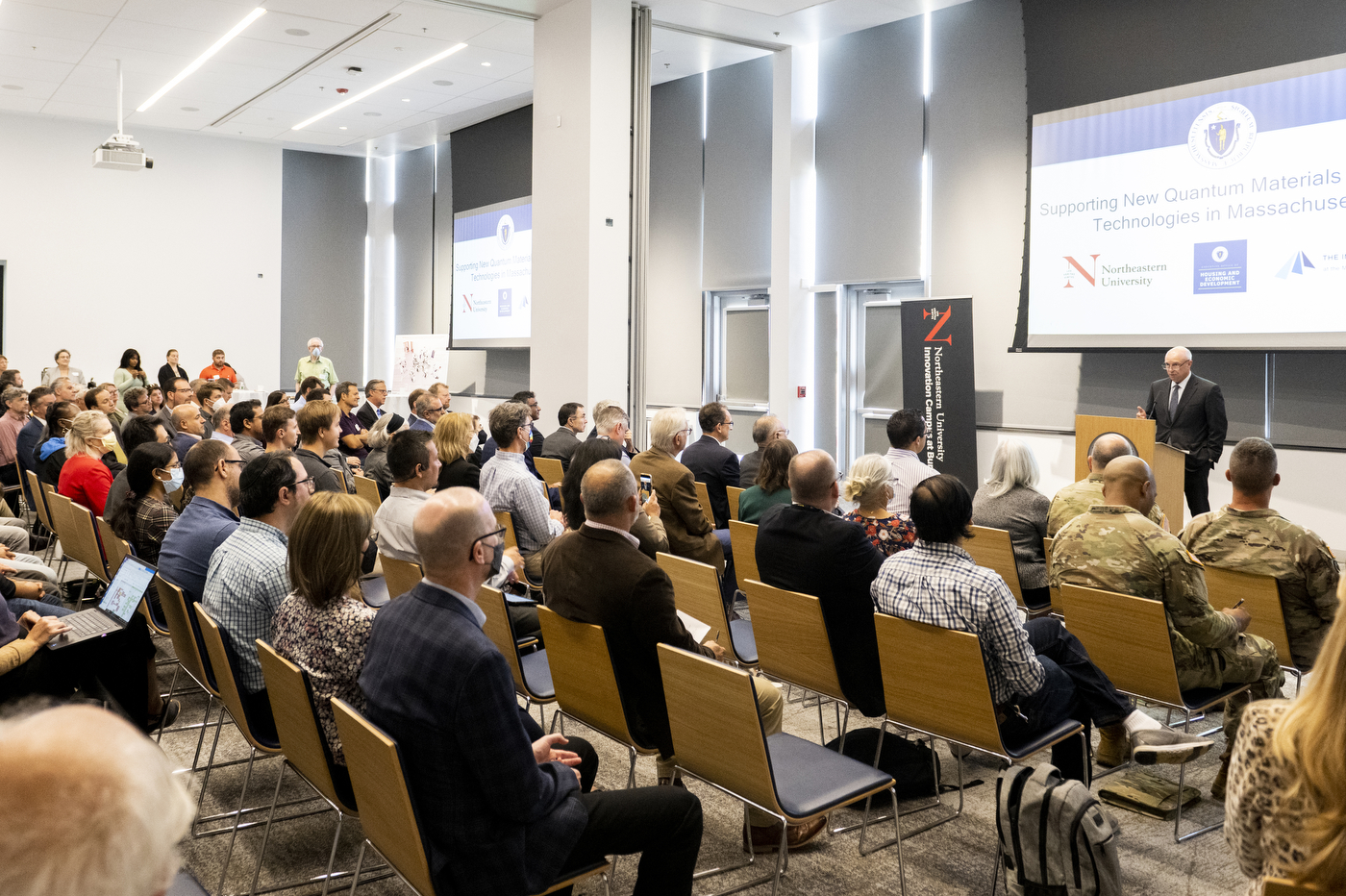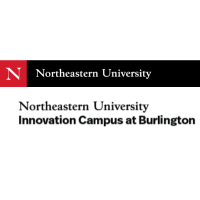Northeastern University Announces It Will Build a $10M Quantum Technology Lab at its Burlington Innovation Campus

Northeastern University’s Innovation Campus in Burlington, Massachusetts, is set to become the epicenter of cutting-edge quantum technology, thanks in part to a new grant.
From: Jessica Taylor Price, Northeastern Global News
https://news.northeastern.edu/2022/09/07/quantum-technology/
Massachusetts Housing and Economic Development Secretary Mike Kennealy on Wednesday announced a $3.5 million grant to establish the Experiential Quantum Advancement Laboratories (EQUAL) at the Innovation Campus.
The grant, part of the Collaborative Research & Development Matching Grant Program and administered by the Innovation Institute at the Massachusetts Technology Collaborative (MassTech), will support the nearly $10 million project.




The award will help strengthen the EQUAL project’s partnerships with the state, nine academic institutions and 23 industry partners. Together, they will advance work on quantum technologies that have wide-reaching applications, while at the same time training students and workers and, in turn, helping to boost the Massachusetts economy.
“This is how we work together to get things done,” Kennealy said during the announcement. “In so many respects, this is the best of who we are, how we work and how we collaborate together.”
EQUAL’s unique focus on industry partnerships means that when the laboratory is completed in Building V, new technologies can be applied at the commercial level right away. The 1,600-square-foot lab sits empty now, but Northeastern associate professor and EQUAL co-director Swastik Kar was optimistic about what it will become—an “assembly line” from concept to commercialization.

There, students will have the opportunity to get in on the ground floor of big discoveries. This includes students in the Biotech Associates to Masters (A2M) Pathway program in partnership with Middlesex Community College, as well as Northeastern students participating in experiential learning programs. Northeastern also plans to expand degree offerings to include Ph.D. and master’s degree programs in quantum information science and engineering.
Importantly, the lab, which Kar expects to open in spring 2023, will all but eliminate the middleman between research and application.
“There’s a lot of researchers doing hard-core research where they’re sort of siloed away and there’s no clear pathway for translating quantum technology from lab to the market,” he said.
Instead, at EQUAL, “there’s a buildup, from the basic level all the way to the end application. And to do that we need not just the expertise, but also a facility that allows us to go from concept all the way to mature technologies all in one go,” he said.
At the end of the assembly line are the industries that will use this technology, like Park Systems, which manufactures atomic microscopes and is located right on campus, and Qnami, a company based in Switzerland that develops technology using quantum mechanics, as well as other small businesses.
“[Northeastern] is the first customer we have in the U.S., and having that facility whose goal is really to explore, understand, and advance quantum sensing technology, it’s a unique chance for us,” said Mathieu Munsch, co-founder and CEO of Qnami. “It’s the perfect place to start in the U.S.”
EQUAL’s work will have implications for the state of Massachusetts, as well. In addition to building on the connection between Northeastern and the state government, EQUAL is slated to create new jobs and bring in revenue to the state, and help Massachusetts compete in the growing field of quantum technologies.
“Our goal is really to make an investment in emerging technology that can have a foreseeable impact on the economy,” Pat Larkin, deputy director of MassTech, said.
But EQUAL’s reach could go even farther than that. There is no one application for quantum technology, Kar explained; it can be applied almost anywhere.
“What [the work is] enabling us to do is develop new technologies that will impact our day-to-day lives, whether it’s health, security, sustainability and other areas,” Kar said.
And the sky’s the limit for what it can accomplish, according to university distinguished professor and EQUAL co-director Arun Bansil. “All that stuff in Star Trek is not that far away,” he said.
Kar and Bansil can’t wait to get started, and they’re excited to have the support of the commonwealth. “We are extremely grateful to the Baker-Polito Administration and MassTech for helping establish the EQUAL lab with this generous grant,” Kar said.


